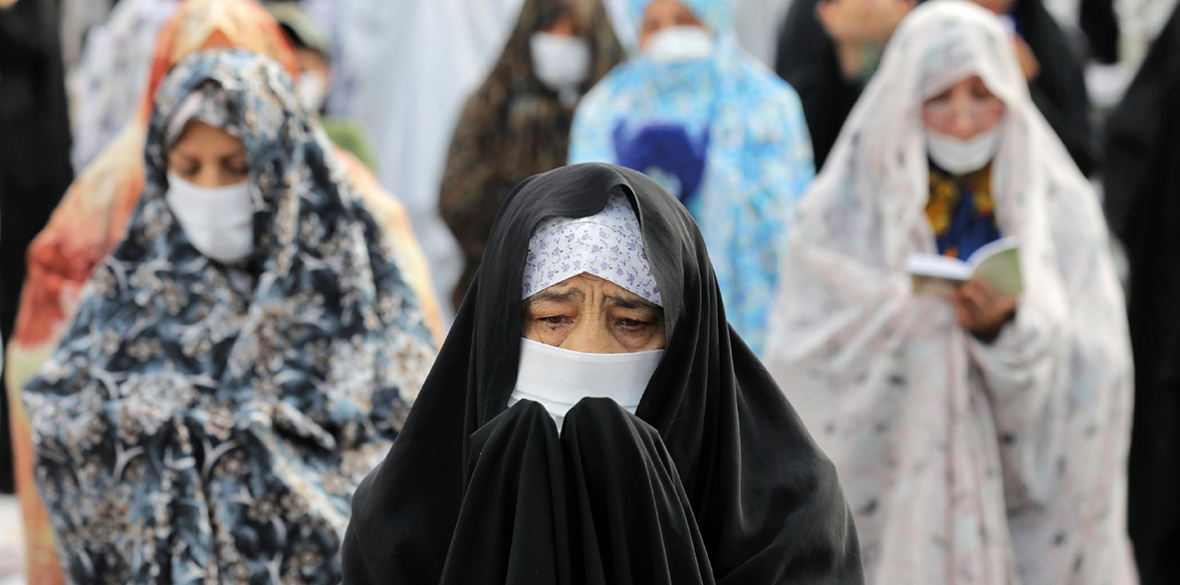This is the last article you can read this month
You can read more article this month
You can read more articles this month
Sorry your limit is up for this month
Reset on:
Please help support the Morning Star by subscribing here
THE policy of the British government towards Iran was summed up by Middle East Minister James Cleverley in the House of Commons on November 3 this year when he said: “Our priority remains to prevent Iran from acquiring nuclear weapons capability, to promote stability and security in the region, to secure the release of all our dual national detainees, and to keep the diplomatic door open for new talks with Iran.”
The focus of Britain’s attention is the Joint Comprehensive Plan of Action (JCPOA), generally known as the Iran nuclear deal, from which the United States withdrew unilaterally in May 2018, as part of the Trump administration’s policy of confrontation with Iran and exerting maximum pressure on the Islamic Republic.
Before the US unilaterally withdrew from the deal there was no evidence, based upon IAEA inspections, that Iran was not complying with the terms of the agreement. The US President-elect Joe Biden has stated his intention to rejoin the agreement, on the basis of Tehran’s strict compliance, and to work with European allies to strengthen and extend the deal.
This would be a positive move, though further attempts to de-stabilise the prospect of a new agreement such as the recent assassination of Iranian nuclear scientist Mohsen Fakhrizadeh may yet present difficulties ahead of Biden’s inauguration.
For certain the policy of the British government must be against being drawn into a wider regional conflict, whatever provocation comes from the United States and however the regime in Tehran may choose to respond. The history of intervention in Iraq and Afghanistan should be sufficient warning. Iran may be weakened by sanctions and a corrupt regime but it would not by any means be a military pushover.
For the people of Iran the key impact of US withdrawal from the JCPOA was the associated tightening of economic sanctions against Iran. The constraints of the deal allowed Iran little room for manoeuvre in any case but the additional sanctions have created hyper-inflation, mass unemployment and poverty on an unprecedented scale.
Government policy needs to be explicit in linking any new agreement with the relaxation of sanctions, which will give the Iranian economy space to breathe and provide the opportunity for some economic stability for the Iranian people.
However, even this degree of latitude will not be sufficient to address the significant democratic and human rights deficit faced by the people of Iran. As it stands the policy of Britain makes no reference to the record of the Islamic Republic on human rights.
It makes no reference to the arbitrary arrest and detention of those engaged in legitimate protest in support of trade union demands for better pay and conditions. It makes no reference to the vetting of any parliamentary candidates who do not conform to the regime’s political and religious orthodoxy.
Arbitrary arrest, imprisonment and trial on trumped-up security charges are a regular feature of the daily lives of those campaigning for social justice and human rights in Iran. Many continue to suffer long-term prison sentences, many have been executed.
There can be no doubt about the anti-people credentials of the Iranian regime, only matched in its vicious response to internal criticism by the United States’ key allies in the region, Israel and Saudi Arabia. Opposition sources inside Iran claim that it is not an exaggeration to suggest that 80 per cent of the population now clamour for political change. They are held at bay by the regime’s use of repression and brute force.
It is important for the British government to campaign for the release of dual nationals such as Nazanin Zaghari-Ratcliffe. However, this position should be extended to include all human rights abuses by the Iranian regime, the freeing of all political prisoners, the guarantee of fair trials and access to legal representation for those charged.
Iran has consistently avoided ratification of the ILO Conventions on the right to free speech and freedom of assembly, both of which are basic democratic expectations. Britain should be insisting that signing up to and implementing such conventions should be a minimum expectation.
Greater scope for freedom of expression inside Iran would undoubtedly lay the groundwork for a stronger opposition force within the country, able to make demands for change and question the grip of the clergy on all aspects of Iranian life.
The Iranian regime will inevitably continue to resist such an approach. This is precisely why the British government must be seen to be using any influence it can exercise, along with European Union partners, to press the question of human rights as part of any renewed agreement with Iran.
It is timely that the Westminster Hall debate is just a day before the anniversary of the United Nations Universal Declaration of Human Rights, adopted in Paris on December 10 1948, as a common standard of achievements for all peoples and all nations, setting out for the first time, fundamental human rights to be universally protected.
Britain should be informed as a priority by this particular date in the international calendar. Peace, stability and social justice in Iran will provide the basis for peace and stability in the region. That can only begin with the people of Iran, men and women, themselves being free and able to freely speak and organise.










